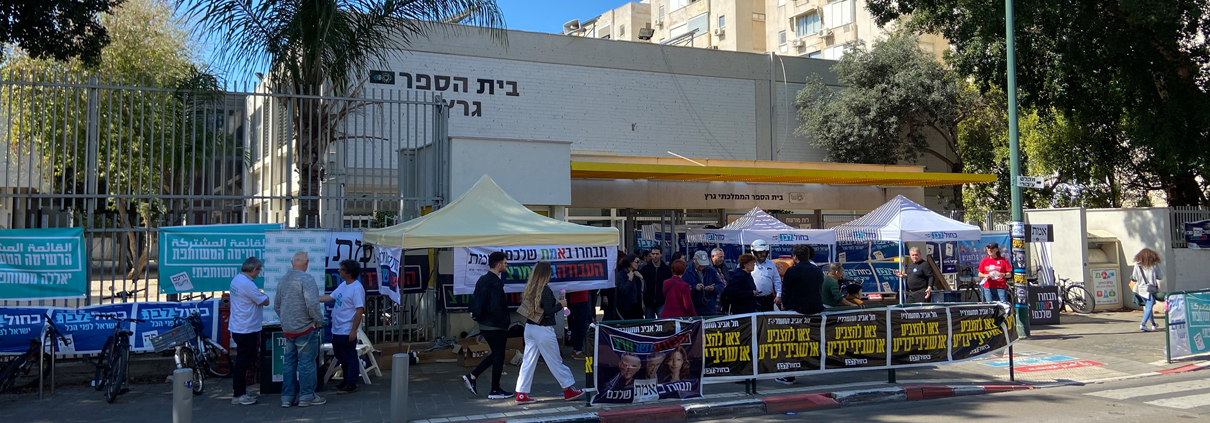The third round of elections in Israel for the 23rd Israeli Knesset
Disastrous Results for Left- List in Israel’s Third Round of Election
At first, the results of the third round of elections in Israel seemed like another standoff between Prime Minister Benjamin Netanyahu (Likud party, 29,46%, 36 seats) and his opponent Benjamin Gantz (Blue and White party, 26,59%, 33 seats). Initially, neither the right nor the center-left block had a majority of 61 or more members of parliament. The Israeli Labor Party (“Avoda”) and Meretz ran, on a joint list for the first time in history, together with Orli Levi-Abekasis‘ Gesher party. The list titled “Labor-Gesher-Meretz” received only 5,83% of the votes, meaning 7 out of 120 seats; this result marks four seats less than both parties obtained together following the previous elections. Thus, the expected effect of gaining more votes on a united list had failed. This is by far the worst result the Israeli political left has ever achieved. Apart from the Likud, only one party managed to gain more seats: The Joint Arab List mobilized not only Palestinians living in Israel, but also left-wing Jewish Israelis seeking for a strong left alternative, resulting with 15 seats.
Turnout of the election for the 23rd Israeli Knesset:
Likud 36 (+4)
Blue and White 33 (0)
Joint List 15 (+2)
Shas 9 (0)
United Torah Judaism 7 (0)
Labor-Gesher-Meretz 7 (-4)
Yisrael Beiteinu 7 (-1)
Yamina 6 (-1)
Affected by the Corona crisis, Benjamin Netanyahu managed to persuade Benjamin Gantz to join an “Emergency Government” in order to form a government. Surprisingly, three members of the Labor-Gesher-Meretz list declared their willingness to join such a government under Netanyahu’s leadership: Orli Levi-Abekasis (Gesher) was first to join Netanyahu’s bloc, followed by Amir Peretz and Itzik Shmuli (both Labor) who seek to become ministers of welfare and economy in the new government. Labor Party chairman Amir Peretz submitted a formal request to dissolve its short-lived alliance with Meretz, effectively clearing Labor’s way to join a government led by Prime Minister Benjamin Netanyahu, alongside Gantz’s Blue and White Party. This move has been harshly criticized by Meretz and within Labor, and especially in their youth organizations. Meretz Chairman Nitzan Horowitz stated that Amir Peretz has „abused the trust of hundreds of thousands of voters“. Moreover, this move has outraged the Labor-Gesher-Meretz voters, considering that Peretz shaved his signature mustache in August 2019, telling voters to „read his lips“ as he asserted that he and the Labor-Gesher alliance would refuse to sit in a government led by Benjamin Netanyahu.
Blue and White also divided over Gantz’s decision to join the “unity government”, as Yair Lapid and Moshe Ya’alon separated their Fractions (Yesh Atid and Telem) from Blue and White. One key concern of those in opposition to joining a government with Netanyahu are his plans to annex the West Bank. Palestinians living in the Occupied Territories oppose this plan, as do Meretz, Young Labor and the Joint List. As there is still disagreement on issues such as the appointment of judges, the new coalition agreement is not signed yet.
So far, it is unclear what this move entails for the future of the Labor Party; many already argue that this marks the end of the party that has established the state and governed it for 29 years, until the “revolution” of the 1977 elections.



